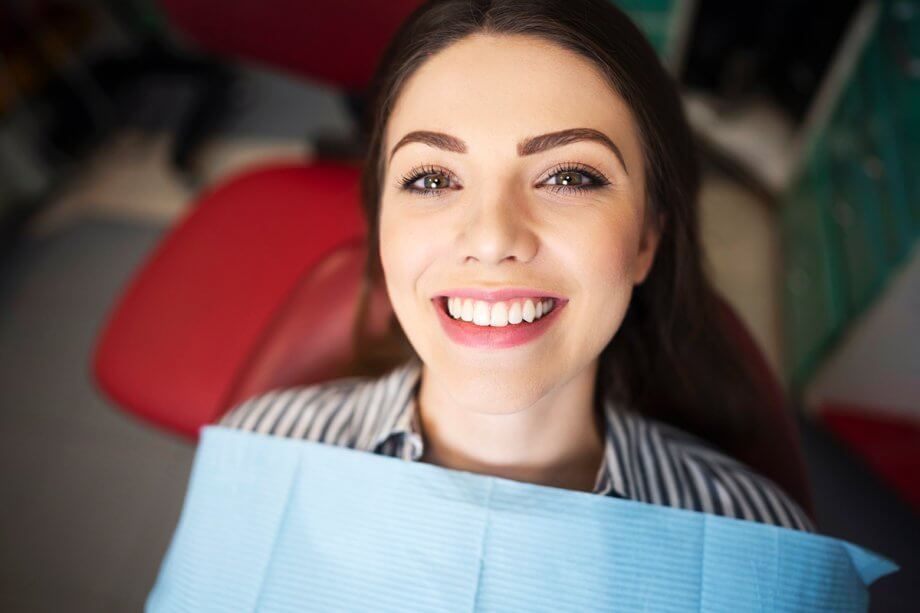Teeth grinding, also referred to as bruxism in dentistry, is a common habit. It is characterized by consistent grinding or clenching the teeth together. Some people only grind their teeth at night while others do it throughout the day as well. However, most people are unaware that they grind their teeth until their dentist notices the signs of tooth wear. Notching of the teeth near the gumline often called tooth brush abrasion is a sure sign of a tooth grinding habit.
What causes teeth grinding and how can you prevent it from harming your dental and overall health? Here’s what you need to know.
Causes of Teeth Grinding
What causes a person to grind their teeth? The following are common causes.
- Stress. When a person experiences stress in their life, whatever the source, it often leads to tension in the body. The jaw is a common place where people tend to hold tension, which can cause you to bite down or clench your jaw.
- Anxiety. If you experience anxiety, whether or not you have a diagnosed anxiety disorder, one of the common physical responses is to clench the jaw tightly. Untreated or unmanaged anxiety can result in chronic teeth grinding.
- Certain medications. Medications for mental and emotional disorders, such as antidepressants, have been linked to teeth grinding. A change in medication could relieve this symptom.
- Substance use. The use of tobacco, alcohol, caffeine, and even recreational drugs can lead to teeth grinding behaviors.
- Sleep disorders. Obstructive sleep apnea is one of the most common sleep disorders. It is characterized by snoring and pauses in breathing while sleeping. The interruption to your sleep cycles can cause you to grind your teeth.
- Genetics. Teeth grinding may run in your family as a genetic trait.
- Medical conditions. Neurological disorders such as Parkinson’s Disease and dementia can lead to teeth grinding. Acid reflux is another common cause.
Symptoms of Teeth Grinding
How do you know if you grind your teeth?
- You frequently wake up with headaches.
- You have pain in your teeth that seems to come from under the gums.
- You have jaw pain, especially in the temporomandibular joint (TMJ), the place where your lower jaw attaches to your skull.
- Your teeth are sensitive to heat and cold.
- You have one or more cracked teeth.
- Your teeth feel loose.
- Your dentist notices signs of premature wear on your teeth during routine exams.
- Your partner hears you gnashing or grinding your teeth together at night.
Diagnosis :
Once it is established that your teeth are wearing out it is often necessary to do a specific exam
To evaluate the type of bite ( How your teeth function together). During this exam the doctor may recommend that you have study molds made of your teeth ; Then with a special wax bite record your stone teeth models may be mounted for a bite study. This type of Occlusal ( Bite)
Study may be used to determine what type of malocclusion( bite imbalance) you may have.
From this information The dentist may determine the best course of action:
- Protective only ( night guard, upper or lower)
- Restorative : Crowns, veneers and direct composite or metal fillings
- Orthodontic tooth movement with clear aligners or traditional braces
- Jaw surgery , Orthognathic correction in concert with orthodontics and restorative care.
Treatment and Prevention
If it comes to your attention that you grind your teeth, the first recommendation is to get a Basic Custom Fit Mouthguard to wear while sleeping. Some patients have jaw and muscle pain that require an Advanced Custom Fit Muscle Relaxation Guard This provides protection for your teeth and shock absorption for your jaw. Grinding your teeth not only wears down your tooth enamel, it puts extreme force on your jaw that can lead to TMJ disorder. Your teeth can even become loose due to the pressure that grinding exerts on the support structures for your teeth.
A common dental problem associated with teeth grinding is cracked teeth. A cracked tooth needs to be treated right away with a filling or crown, and possibly also a root canal depending on the depth and extent of the crack. This prevents your tooth from becoming infected due to bacteria exposure.
Scarsdale Dental Group Provides Solutions for Teeth Grinding as well as TMJ/TMD TX
At Scarsdale Dental Group we provide you with treatment for the effects of Bruxism/teeth grinding, muscle relaxation therapy, as well as strategies to restore your worn out dentition or at least to prevent further damage to your teeth and jaw.
To learn more about the causes and treatment of teeth grinding, call 914-723-4707 or contact us today to schedule an appointment.


